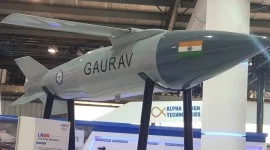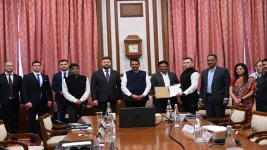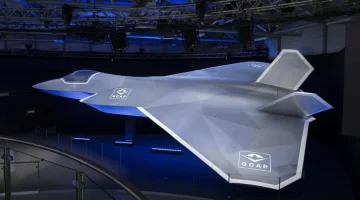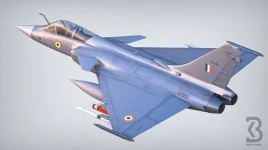- Views: 88
- Replies: 1
A prominent Pakistani think tank, the Center for International Strategic Studies (CISS), has urged Islamabad to formally oppose a recent agreement allowing US company Holtec International to transfer Small Modular Reactor (SMR) technology to India.
The approval, granted by the U.S. Department of Energy in early 2025, permits India to pursue the design and construction of these advanced reactors. The CISS expressed significant concern regarding the potential defence implications, particularly for enhancing India's nuclear submarine fleet.
SMRs are compact nuclear reactors, typically generating up to 300 MW, suitable for various uses including power generation and potentially marine propulsion. Their smaller footprint and modular nature make them theoretically adaptable for platforms like submarines where space is limited and high power density is valuable.
The Islamabad-based think tank contends that this technology transfer could substantially boost India's indigenous capability to develop more advanced reactors for its nuclear-powered ballistic missile submarines (SSBNs) and nuclear-powered attack submarines (SSNs), thereby strengthening India's strategic deterrence and naval presence in the Indian Ocean Region.
Specifically, the CISS report suggests that Holtec's SMR-300 design, a pressurized light-water reactor, could potentially be modified for future Indian submarines. They argue such reactors might offer superior endurance and quieter operation compared to the current 190 MW reactors powering India's existing Arihant-class submarines.
The think tank warned that this technological advancement could shift the regional strategic balance, especially considering India's declared plans under the Advanced Technology Vessel (ATV) project to build six SSNs and expand its SSBN fleet. The report also noted potential non-military uses, such as powering civilian submarines for deep-sea exploration.
From the CISS perspective, India's expanding nuclear capabilities represent a direct challenge to Pakistan's security interests. The think tank stated that the versatility of SMRs could accelerate the modernization of India's nuclear triad, especially its sea-based leg.
It called upon the Pakistani government to protest the transfer at international bodies like the International Atomic Energy Agency (IAEA), asserting it risks fueling a regional arms race.
The CISS drew parallels to the 2008 U.S.-India Civil Nuclear Agreement, arguing it exemplified preferential treatment for India, a non-signatory to the Nuclear Non-Proliferation Treaty (NPT), potentially destabilizing South Asia.
However, this assessment primarily focuses on potential military applications, while India has emphasized the civilian goals of its SMR programme. India's strategy involves deploying SMRs, potentially reaching up to 50 units by 2040, mainly to enhance energy security and support industrial decarbonization efforts, including repurposing former coal power plant locations.
The collaboration with Holtec is explicitly for civilian energy purposes and falls under IAEA safeguards designed to prevent the diversion of nuclear material for military use. Furthermore, adapting a land-based civilian SMR design for the unique and demanding requirements of a submarine reactor involves substantial technical hurdles, significant re-engineering, and extensive safety qualifications, a process likely to take many years.
It is also noteworthy that Pakistan has shown interest in SMR technology for its own energy needs, reportedly exploring options involving Chinese assistance through the China-Pakistan Economic Corridor (CPEC). The CISS's strong opposition may also reflect broader concerns within Pakistan regarding India's growing technological capabilities, bolstered by strategic partnerships with the US, France, and Russia.







